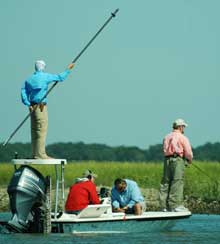 A Roundtable Discussion of Sexual Harassment (Part 1)
A Roundtable Discussion of Sexual Harassment (Part 1)
“I believe it has never been my misfortune to be placed where I lost my presence of mind, unless indeed it has been when thrown in strange company, particularly of ladies. Under such circumstances I know I must appear like a fool.”
– General Ulysses S. Grant, in a letter to his wife Julia
With all the talk about sexual harassment and abuse cases accelerating in the media, and probably at countless dinner tables, I wanted to turn this week to some of my most intellectually vibrant friends and just plain good people. The goal was to tee up some focused conversation about this not just timely but critical set of issues. Like most men, I am rather ill-informed here, though I do want to learn a lot more and share a range of thoughts.
I could think of no better partners in this sort of discussion than Kent (he of “Growing Old Noisily” and several other columns in these pages) and Mary. Kent Speight was raised in a small town in Illinois and then Milwaukee. He attended Nicolet High School, Carroll College and then the University of Wisconsin law school. Graduating in 1975 Kent joined a law practice in small town Minnesota, eventually running his own firm starting in 1986. He has “a wife, two step-daughters and two granddaughters, all of whom think it is about time that someone started speaking out about harassment.”
Mary J. Rogel is a Ph.D. social psychologist and a licensed acupuncturist with a full-time private practice in Chicago, where she lives with her husband and cat. She has taught psychology and acupuncture orthopedics, been involved in acupuncture politics and shape-note singing, and sings in a choir that performed at the Kennedy Center recently. She also thinks our Lowcountry lemons and grapefruit are divine.
Jack: Gee, I’m glad we’re not talking about music today. You two are so far ahead of me! But I’m so glad that you agreed to discuss sexual harassment for a bit. Let’s start with a few basic questions.
First, What, so far, do you consider to be the main takeaways of all these recent reports of sexual abuse and harassment in the workplace?
Kent: My main takeaway about the recent numerous reports of abuse is that the current political climate has finally challenged women to say “enough.” I think when it’s clear from the top down among our elected, entertainment and business leaders that harassment and abuse are not only allowed but expected, women have no choice but to speak up and try to put a stop to this. It’s clear that the people in authority not only are not going to do anything, but in many cases they are the worst perpetrators. So, unless women start speaking up nothing will ever change and, more likely, things will get worse.
Mary: My generation of women - same age as you - was painfully attuned to the problem, and we worked mightily to change it. Not long ago I was speaking with a woman who could have been my daughter and realized that she was still fighting the same battle that my generation fought and thought we had won, involving sexual assault on college campuses, specifically our alma mater, Jack.
Jack: One takeaway for me is that this perennial problem may have crested, at least in America. It’s solvable, though this is going to take a long time. I sure hope I’m wrong on that last point.
Mary: By the way, guys, welcome to my world! What woman has not experienced sexual harassment of some sort? I don’t know any. The world can now see what women have always known, which is how common this is. Another is that men suffer no consequences for their bad behavior - they feel entitled, and they know that those who could have the power to punish them are doing the same thing, so nothing bad is going to happen to them.
The system reinforces this bad behavior because women who report abuse are abused again by the system, so there is no incentive to report and every incentive not to. When we were in school, Jack, women knew that if they reported rape they would not be believed, they would be accused of provoking the attack, they would be personally maligned, they would be asked if they enjoyed it, they would be advised to lie back and enjoy it, they might be raped again by the person to whom they were reporting. The case would most likely never be brought to trial because evidence would not be collected properly or at all; I could go on. The police and the lawyers and judges, mostly all men, were notoriously insensitive and abusive. Not a lot has changed since then.
I can only hope that this is the start of something new and that there will be an overhaul in the system. Can you imagine what a fabulous world this could be if people stopped victimizing each other?
Jack: Do you think, as I do, that all these reports are merely the tip of the tip of the tip of the iceberg? What about all the usually smaller companies with no HR departments?
Can I start? We’re just hearing about high profile attackers in high visibility industries or businesses – television, politics, Hollywood. My much bigger concern is about the millions of women who work in smaller companies and/or those without human resource departments. What recourse does a 35-year old mother of two, divorced, who works for a sexual predator who also runs a company of 25 employees, have? And there’s this . . . a recent survey out of Quinnipiac University showed that 60% of American women say they’ve been sexually harassed. Of those, 69% say it happened at work, 43% say it happened in a social setting, and 45% said it took place on the street. It’s like many if not most women just can’t get away from it.
Mary: Yes, certainly tip of the tip of the tip. However, I think the only reason you are seeing it in the workplace is because it’s everywhere. I think it’s somewhat irrelevant to look at business and industry. It’s everywhere. A woman cannot walk down the street without drawing unwanted attention. I have to admit it’s a little easier now that I have reached crone status, and strange men are more complimentary than derogatory, as they were when I was “svelte.” But I still have to be careful.
Kent: I definitely agree this is not even the tip of the tip of the iceberg. Every woman I know has been subjected to some form of abuse and intimidation. I think the problem is pervasive and as old as the relationship between men and women. Ultimately, I think that is what this is about. The inequality of the sexes and how men have treated women for millennia.ÃÃÃÃÃÃÃÂ
Jack: Shoot me! We just got started and we need to take a break for now. Let’s pick this up again soon, there’s so much more to cover! I promise to bite my tongue a bit better next time.
Kent: Yeah, right and where’s your bridge for sale?
Mary: You said it and we’re taking notes, old friend.







